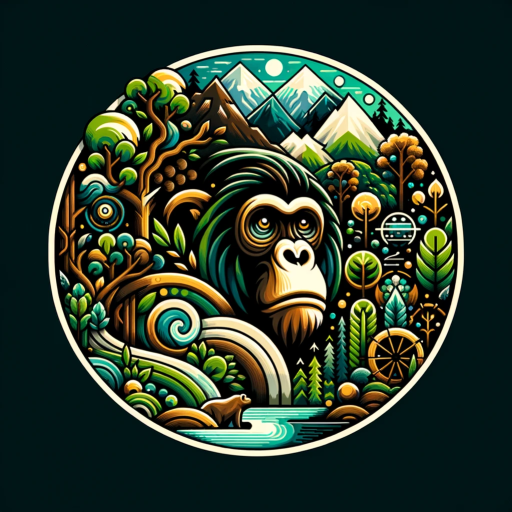How AI is Revolutionizing Our Understanding of Music Today
The evolution of music is inherently tied to cultural advancements and technological progress. Today, artificial intelligence (AI) is at the forefront of a significant transformation within the music industry. It is not only altering how music is composed, produced, and consumed but is also reshaping our understanding of creativity and artistic expression. This blog will explore how AI is revolutionizing our relationship with music and the implications of this rapidly changing landscape.
The Intersection of AI and Music
Artificial intelligence, defined as software that mimics human cognitive functions, is increasingly being integrated into various creative fields. Within the music industry, AI tools are being deployed for a variety of applications, including:
- Music Composition: AI can generate new melodies, harmonies, and beats, providing a fresh perspective on songwriting.
- Sound Engineering: AI applications are being used to enhance sound quality, optimize mixing techniques, and even master tracks.
- Music Recommendation: Streaming platforms utilize AI algorithms to analyze user preferences and suggest personalized playlists.
These applications illustrate how AI is redefining traditional roles within the music industry, making it easier for artists, producers, and fans to engage with music in innovative ways.
AI and the Composition of Music
One of the most significant advancements in the field of AI is its ability to compose music. Innovations like OpenAI’s MuseNet or Google’s Magenta project demonstrate how algorithms can produce complex musical compositions that echo the works of renowned artists. This has sparked discussions on several fronts:
Creativity Redefined
The advent of AI in music composition raises questions about originality and creativity. Musicians are often inspired by different genres, experiences, and cultures, leading to unique styles and sounds. However, when an AI can replicate these influences and even create something new, the definition of creativity becomes blurred.
– Do we consider AI-generated music as genuine art?
– Can AI truly feel or understand the emotionality behind music?
These questions force artists and audiences alike to rethink their understanding of creativity and the creative process itself.
Collaborative Efforts
AI is not solely a replacement for human creativity; rather, it serves as a valuable partner. Many artists are beginning to utilize AI tools to brainstorm ideas and explore musical concepts that they may never have considered. For instance:
– Musicians can experiment with different styles and genres seamlessly.
– AI-generated tracks can serve as a foundation for human musicians to build upon.
This notion of collaboration suggests that AI can act as a muse, pushing the boundaries of musical creativity.
The Role of AI in Music Production
In addition to composition, AI technology has substantially transformed the music production process. Sophisticated algorithms can analyze raw audio and detect elements such as pitch, rhythm, and timbre, thus paving the way for improved sound quality. Key impacts include:
Enhanced Mixing and Mastering
AI-driven tools can now assist sound engineers in refining tracks by automating time-consuming tasks. Some advancements include:
- Intelligent EQ Optimization: AI can provide real-time suggestions for equalization based on audio analysis.
- Dynamic Range Compression: Algorithms analyze the loudness and dynamics of a track to apply the optimal level of compression.
- Automated Mastering: Services like LANDR use AI to produce professional-quality masters without needing a human engineer.
These technological advancements not only increase efficiency but also enable more artists to produce high-quality music, even without access to expensive studio equipment.
Personalization and User Experience
The impact of AI extends beyond music production into the realm of user experience. Streaming platforms like Spotify and Apple Music employ AI algorithms to enhance music discovery. The driving factors include:
– Personalized playlists based on listening habits.
– AI-curated radio stations that adapt in real-time to listener feedback.
This personalization fosters deeper connections between music and listeners, making the auditory experience more engaging and tailored.
The Ethics of AI in Music
As AI continues to reshape the music landscape, ethical considerations also arise. Key concerns include:
Ownership and Rights
When an AI system composes a song, who holds the copyright? The question of authorship complicates traditional definitions of ownership. Collaborations between human musicians and AI challenge the notion of intellectual property, introducing a need for new frameworks and legal standards.
Potential for Homogenization
While AI can facilitate creativity, there is a concern that its use could lead to homogenization in music. If algorithms are programmed to prioritize certain patterns and trends, it may restrict the diversity of sounds and artistic expression.
– Will music become less innovative?
– How can we ensure that AI serves as an asset, not a constraint?
To preserve the richness of musical diversity, constant dialogue on the ethical implications of AI in music is essential.
The Future of AI in Music
As artificial intelligence continues to evolve, its role in the music industry is expected to expand. Future innovations may include:
– AI-powered instruments that adapt to a musician’s play style.
– Virtual reality experiences that allow users to engage with AI-generated music in immersive environments.
With technological advancements propelling the industry forward, the future of music promises to be a dynamic interplay of human creativity and artificial intelligence.
Conclusion
In conclusion, artificial intelligence is profoundly impacting our understanding and experience of music. From redefining creativity to enhancing production processes and creating personalized listening experiences, AI is both a revolutionary force and a source of ethical debate. As we navigate this new landscape, it is crucial for artists, producers, and listeners to engage thoughtfully with these developments, ensuring that music remains a vibrant and diverse form of human expression in an age of artificial creativity. The journey of music in the age of AI is just beginning, and the possibilities are limitless.

